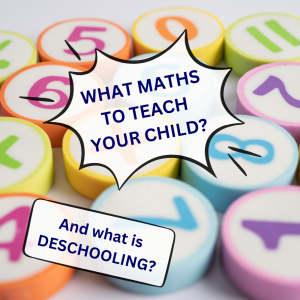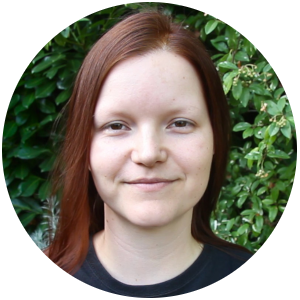 I know teaching your child maths may sound like a big task, especially when it comes to secondary maths. Algebra, that part of maths with a lot of letters, seems to be for many people more scary than dentists or clowns.
I know teaching your child maths may sound like a big task, especially when it comes to secondary maths. Algebra, that part of maths with a lot of letters, seems to be for many people more scary than dentists or clowns.
I obviously love algebra, but you can guess what (who) I'm not keen to be around (hint: it is indeed either dentists or clowns).
With the right resources, textbooks, video tutorials, apps,... a lot of the maths topics can be easy to teach as a home educator even if you don't have any (particular) educational background.
Let me give you some points to think about when organising your maths learning.
You may want to follow the curriculum, or you may want to make your own. You can be working towards specific exams (but you don't have to).
What I'd say matters is to give your child a chance to use their mathematical potential.
Then your child will be able to show you what they're capable of and you can adjust your expectations accordingly to your child's future goals (for studies, work and life).
You might find out that your child's age and their expected learning level don't match (have a look at >> this handy table << if you want to know what school systems across the UK expect from each child).
Oh no, what then?
No worries. No panic is necessary. Your home education, your rules (mostly).
If they (and you) are happy with "just" life skills maths, and find more fancy maths tricky and difficult, that's all completely fine. After all, one of the reasons you are home educating likely might be the freedom of choice and not having to learn a lot of unnecessary nonsense.
Actually, not that much of the maths we learn is something that the children "will never use in their life, ever". People do use more maths in their lives than they'd expect to. But these skills can be always learnt later when needed.
Often I see parents taking their children out of the school education, later in the game, so to speak, and panicking that "he/she has exams in a year, two years, half a year..."
What you might want to focus on is nurturing a love for learning, maths included, which will give your child time to shine in the best learning environment you can create for them. Then you might discover together your child's true strengths which will help boost confidence and tackle any weaknesses more easily. Exams are ready to be conquered every year (some more than once a year). When the time is right, your child will be more ready than "in a year, two years, half a year..." just because that was what they were expected to do when being at school.
On the other hand, you might have a little genius at home, ready to master maths one, two or more years earlier than they would do at school. In that case, just work on what seems right considering their goals. No need to conform to some made-up learning timeline if your child is way ahead.
By discussing your main goal together, you can find out more easily what maths you need to achieve the goal (check what requirements your chosen educational/work pathway has). Then you can create your learning plan.
It's really as easy as these little steps:
Discuss plans - discover your goal - create the battle plan. (Or just an ordinary educational plan. That will also work fine.)
Then you'll know what maths you should be teaching your child.
But before you even start your maths home educating journey...
Have you heard of deschooling?
It's a time off, literally meant for your child to take a break from school learning.
Not everyone needs it. It mostly depends on what your reasons for starting home education were.
Some students started home education for issues of a social matter while their academic life wasn't affected and they're happy to dive into learning at home straight away. That's all great.
However, some students weren't having their academic needs met particularly well which can often lead to quite serious learning-related anxieties. So having time to "leave the old ways behind" means they can start a new learning journey with a fresh perspective and healthy curiosity.
Deschooling doesn't mean doing nothing. Deschooling can be a lot of things.
For example, you might want to work on life skills which can include a variety of academic-based tasks. This applies to any part of home education and all related school subjects. I will, of course, stick to the maths as that's what I'm best at for help and advice.
A lot of maths is involved in:
√ cooking (measuring, ratios when cooking for more or fewer people)
√ shopping/budget planning (estimated cost, checking change,...)
√ DIY of all sorts (measuring, calculating the material needed, often geometry skills - including plan drawing,...)
√ trip planning (money exchange if abroad, budget, journey and its times,...)
But mainly, deschooling should be fun and happy times for you and your child. When your child is happy and has a curious mind ready to tackle learning the way it suits them, that's when they can achieve their best.
If you'd like to discuss more deschooling ideas (and ideas on what maths to teach your child), feel free to join my Facebook group for home educators - Home Educate Maths. That's the best place to brainstorm and find ways to make maths more fun.
Because what's fun to learn, is also easy to learn.



